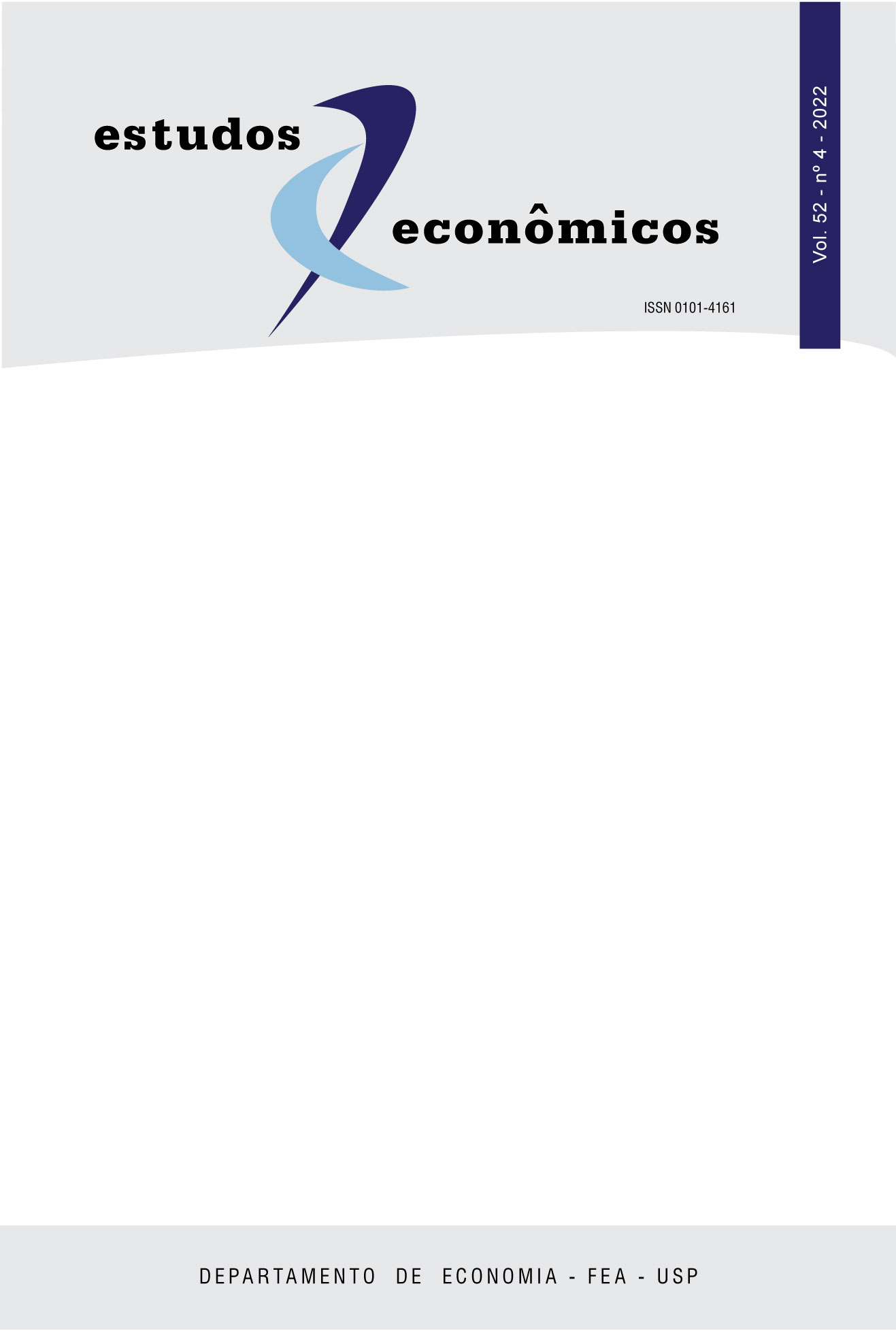Licitações com preço de reserva secreto e negociação: uma análise de teoria dos leilões para o caso de valores privados
DOI:
https://doi.org/10.1590/1980-53575242mbapPalavras-chave:
Licitações públicas, Preço de reserva anunciado, Preço de reserva secreto, Negociação em licitaçõesResumo
Este artigo compara diferentes mecanismos de contratação de uma obra ou serviço por meio de uma licitação. São consideradas a licitação simples sem preço de reserva, a licitação com preço de reserva anunciado, a licitação com preço de reserva secreto e, por fim, a licitação com preço de reserva secreto, mas com possibilidade de negociação ex post caso o vencedor tenha feito lance acima do preço de reserva. É adotada a hipótese de valores privados simétricos, independentes e identicamente distribuídos. A análise teórica e as simulações sugerem uma superioridade da inclusão de preços de reserva, sendo que anunciar publicamente o preço de reserva se mostra um mecanismo mais vantajoso se o preço de reserva for baixo, enquanto manter o preço de reserva secreto se mostra mais vantajoso se esse preço for elevado. Ademais, a inclusão da negociação no modelo de licitação com preço de reserva secreto induz um aumento nos lances dos participantes, majorando o custo final para o governo. No entanto, se o benefício social da obra ou serviço contratado for suficientemente maior que seu custo de reserva, então o mecanismo da negociação se torna vantajoso.
Downloads
Referências
Albano, Gian Luigi e Marco Sparro. 2008. “A Simple Model of Framework Agreements: Competition and Efficiency.” Journal of Public Procurement 8(3): 356-378.
Albano, Gian Luigi e Marco Sparro. 2010. “Flexible Strategies for Centralized Public Procurement.” Review of Economic Institutions 1(2): 1-32.
Branco, Fernando. 1997. “The design of multidimensional auctions”. RAND Journal of Economics 28 (1): 63-81.
Brasil. 2021. “Lei nº 14.133, de 1 de Abril de 2021. Lei de Licitações e Contratos Administrativos”. Diário Oficial da União 61-F (Abril): 2.
Brisset, Karine e Florence Naegelen. 2006. “Why the reserve price should not be kept secret”. The BE Journal of Theoretical Economics 6 (1): 1-17.
Bugarin, Mauricio Soares e Frederico Ribeiro. 2021. “The Paradox of Concessions in Developing Countries”. Brazilian Review of Econometrics 41 (1): 69-100.
Bulow, Jeremy e Paul Klemperer. 1996. “Auctions vs. negotiations”. American Economic Review 86 (1): 180-194.
De Castro, Luciano e María-Angeles de Frutos. 2010. “How to translate results from auctions to procurements”. Economics Letters 106 (2): 115-118.
Elyakime, Bernard, Jean Jacques Laffont, Patrice Loisel e Quang Vuong. 1994. “First-price sealed-bid auctions with secret reservation prices.” Annales d’Economie et de Statistique 34: 115-141.
Ivanova-Stenzel, Radosveta e Sabine Kroger. 2005. “Behavior in combined mechanisms: Auctions with a prenegotiation stage-an experimental investigation”. Department of Economics, University of Arizona, Tucson.
Katzman, Brett. 1999. “A two stage sequential auction with multi-unit demands”. Journal of Economic Theory 86 (1): 77-99.
Kersten, Gregory, Tomasz Wachowicz e Margaret Kersten. 2016. “Competition, transparency, and reciprocity: a comparative study of auctions and negotiations”. Group Decision and Negotiation 25 (4): 693-722.
Kirkegaard, Renée. 2004. “Auctions versus negotiations revisited”. Department of Economics, University of Aarhus, Aarhus.
Laffont, Jean Jacques e Eric Maskin. 1980. “Optimal reservation price in the Vickrey auction.” Economics Letters 6 (4): 309-313.
Milgrom, Paul R. e Robert J. Weber. 1982. “A theory of auctions and competitive bidding.” Econometrica 50 (5): 1089-1122.
Myerson, Roger B. 1981. “Optimal auction design”. Mathematics of Operations Research 6 (1): 58-73.
Nóbrega, Marcos. 2015. “O Regime Diferenciado de Contratação – RDC, Negotiauction e o Orçamento Sigiloso. ” Revista Eletrônica de Direito do Estado (REDE) 42.
Parlamento Europeu. 2014. “Diretiva 2014/24/UE do Parlamento Europeu e do Conselho de 26 de fevereiro de 2014, relativa aos contratos públicos e que revoga a Diretiva 2004/18/CE”. Acessado em 20/08/2022.
https://eur-lex.europa.eu/legal-content/PT/TXT/?uri=CELEX%3A32014L0024.
Pham, Long, Alexander Zaitsev, Robert Steiner e Jeffrey Teich. 2013. “NegotiAuction: An experimental study”. Decision Support Systems 56: 300-309.
Portugal, Adriana e Mauricio Bugarin. 2021. “Limite de contratos por empresas em licitações públicas: uma análise sob a ótica da teoria dos leilões”. Revista do TCU 1 (147): 92-113.
Rezende, Renato M. 2013. “O Regime Diferenciado de Contratações Públicas: Comentários à Lei nº 12.462, de 2011”. Texto para Discussão nº 100, Núcleo de Estudos e Pesquisas do Senado.
Riley, John e William Samuelson. 1981. “Optimal auctions”. American Economic Review 71 (3): 381-392.
Silva, Ângelo. 2011. “Preço de reserva sigiloso em licitações públicas”. Prêmio Tesouro Nacional 16.
Publicado
Edição
Seção
Licença
Copyright (c) 2022 Mauricio Soares Bugarin, Adriana Cuoco Portugal

Este trabalho está licenciado sob uma licença Creative Commons Attribution-NonCommercial 4.0 International License.
A submissão de artigo autoriza sua publicação e implica o compromisso de que o mesmo material não esteja sendo submetido a outro periódico.
A revista não paga direitos autorais aos autores dos artigos publicados.
Dados de financiamento
-
Conselho Nacional de Desenvolvimento Científico e Tecnológico
Números do Financiamento 308830/2019-9





 Atualizado em 14/08/2025
Atualizado em 14/08/2025